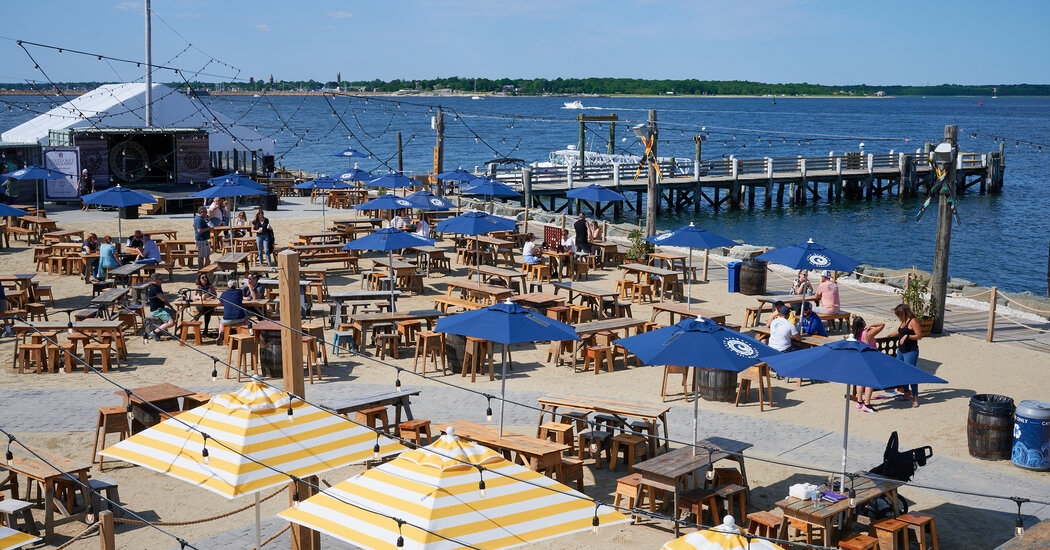“I have some folks here who are painting the other side of the house,” my Airbnb host messaged me before a road trip to New Bedford, Mass. “The guys are really quite awesome/talented artists, lots of good vibes.”
Indeed, when Aaren, my travel partner, and I turned off County Street to find our home for two nights — a one-bedroom apartment in an 1855 Victorian that was once apparently rented by Herman Melville’s sister — three painters were industriously updating the house’s exterior with cream, orange, blue and warm gray colors.
These days, the entire city, approximately 60 miles from Boston, seems to be getting a fresh coat of paint. Signs of rejuvenation are everywhere, from a park honoring abolitionists to new murals on old buildings.
Once the world’s wealthiest city per capita and a powerhouse in whaling and textile manufacturing, New Bedford fell into decline in the mid and late 20th century, enduring a high crime rate, high unemployment, urban blight and bad jokes (“New Bedford: The armpit of Cape Cod, maybe the nation”). If they stopped at all, many travelers would stay only for a meal, or a visit to the New Bedford Whaling Museum, before continuing via ferry to Martha’s Vineyard or driving Interstate 195 to Cape Cod.
Yes, New Bedford continues to lean heavily into its maritime past: Not only did we stay at the charming Whalehouse and visit the Whaling Museum, we also ate at the Whaler’s Tavern and toured a restored mansion built on whaling money. But there’s a focus on the present, too. Old textile mills are being reimagined, new restaurants are thriving and exhibitions and parks are expanding to better tell the city’s long history of promoting equality. Museums, downtown artist studios and performance spaces speak to investment in the creative class. As for the future, the first train service from Boston since the late 1950s is expected to start next year. (Its planned route is not without complaints.)
Thanks to health care and commercial fishing and other maritime industries, New Bedford remains a working city. It does not rely on tourism, though everywhere we went, we met proud, invested residents — from the volunteer docent at the Whaling Museum to the curator at New Bedford Free Public Library to the waitstaff at restaurants.
“There’s no Cape Cod pretentiousness in the city, because we’re not really Cape Cod. We’re the South Coast,” said Allie Copeland, the curator, adding that New Bedford “has a very…
Click Here to Read the Full Original Article at NYT > Travel…
